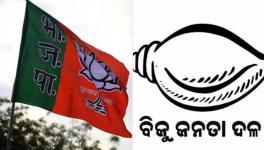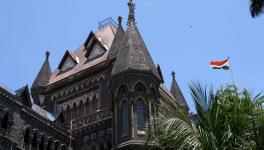The Higher Judiciary’s Increasing Role in Protecting Interfaith Couples
RECENT events in Dindori district in Madhya Pradesh may well become a metaphor for the use of State machinery to bully interfaith couples who wish to marry each other out of love. Earlier this month, a Hindu girl eloped with a Muslim boy, but they didn’t know that they can legally get married under the Special Marriage Act, 1954 [SMA], a legislation that allows solemnisation of marriages irrespective of the religion of the couple. Lack of this awareness meant that a case was filed by the girl’s family against the boy under Section 366 of the Indian Penal Code, dealing with the offence of kidnapping, abducting or inducing a woman to compel her marriage.
What happened after this, however, was outrageous. The district administration, under pressure from local fringe elements belonging to the ruling Bharatiya Janta Party in the state, razed the properties of the boy’s family, on the specious ground that they were illegally constructed – the same argument which is currently used across the country to demolish properties belonging to persons of minority communities, suspected of participation in communal riots. Three shops belonging to the boy’s family, namely, an online service centre, a tea stall and their chicken shop, were demolished. Subsequently, the administration, again under pressure from the fringe elements, razed the house registered in the name of the boy’s father, using the allegation of “illegal construction” as an excuse.
A video of the girl emerged a day after the house was demolished, in which she requests the Chief Minister Shivraj Singh Chouhan and the Dindori Superintendent of Police to extend protection to her and her husband or else they will commit suicide as they are being tortured, and their house and shops have been demolished.
Indeed, it is increasingly becoming a challenge for interfaith couples to get married in India, without the protection of the judiciary. On Monday, a single judge bench of Justice Nandita Dubey of the Madhya Pradesh High Court extended protection of personal liberty under Article 21 of the Constitution to Dindori’s interfaith couple, Sakshi Sahu and Asif Khan, on the ground that they married each other willingly and that being citizens of India and adults, they have a right to choose the life partner of their choice.
Notably, this is not the first time that Justice Dubey extended protection to interfaith couples. In January this year, she protected the rights of an interfaith live-in couple by observing that “no moral policing” can be allowed when two individuals have decided to live together willingly. In February, a Madhya Pradesh High Court bench comprising Justices Sheel Nagu and M.S. Bhatti ordered the release of a 19 years-old girl from Nari Niketan and gave her the choice to live either with her partner, belonging to another faith, or her family. The girl chose to live with her partner, with the latter telling the court that they would get married under the SMA and would pursue their individual faiths.
These judgments are in consonance with the Supreme Court’s landmark decision in Shafin Jahan vs. Asokan K.M. (2018), wherein it had declared an adult’s right to marry a person of choice as an indispensable part of personal liberty and privacy. The judiciary, therefore, should not be a mute spectator to the state government’s intention to bully the interfaith couples through illegal demolitions.
The Madhya Pradesh High Court’s effective intervention to protect the interfaith couple from harassment is a timely reminder of how the higher judiciary can play a pivotal role in changing people’s perceptions regarding marriage and living together. Last year, the Allahabad High Court had declared that Section 5 of SMA, which requires parties to give a 30-day public notice of their intention to marry, as not mandatory, in order to protect their fundamental rights of liberty and privacy. The High Court found that the couple in this case had taken the route of religious conversion, in order to avoid the 30-day waiting period under the SMA, and the risk to their privacy and dignity.
With many states enacting laws to make conversion of religion by marriage unlawful, the SMA may indeed prove to be a blessing-in-disguise for the interfaith couple. However, the Supreme Court should decide the pending case (Nandini Praveen vs. Union of India) which challenges the many procedural obligations under the SMA, expeditiously in order to make it more effective.
Get the latest reports & analysis with people's perspective on Protests, movements & deep analytical videos, discussions of the current affairs in your Telegram app. Subscribe to NewsClick's Telegram channel & get Real-Time updates on stories, as they get published on our website.
























